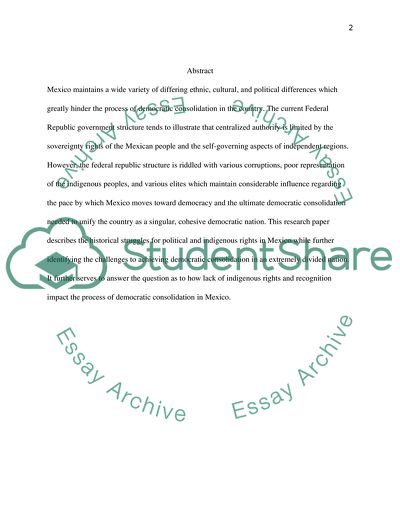Cite this document
(The Struggle for Political Rights and Indigenous Culture Recognition Research Paper, n.d.)
The Struggle for Political Rights and Indigenous Culture Recognition Research Paper. Retrieved from https://studentshare.org/politics/1711141-indigenous-rights-and-democratic-consolidation-in-mexico
The Struggle for Political Rights and Indigenous Culture Recognition Research Paper. Retrieved from https://studentshare.org/politics/1711141-indigenous-rights-and-democratic-consolidation-in-mexico
(The Struggle for Political Rights and Indigenous Culture Recognition Research Paper)
The Struggle for Political Rights and Indigenous Culture Recognition Research Paper. https://studentshare.org/politics/1711141-indigenous-rights-and-democratic-consolidation-in-mexico.
The Struggle for Political Rights and Indigenous Culture Recognition Research Paper. https://studentshare.org/politics/1711141-indigenous-rights-and-democratic-consolidation-in-mexico.
“The Struggle for Political Rights and Indigenous Culture Recognition Research Paper”, n.d. https://studentshare.org/politics/1711141-indigenous-rights-and-democratic-consolidation-in-mexico.


